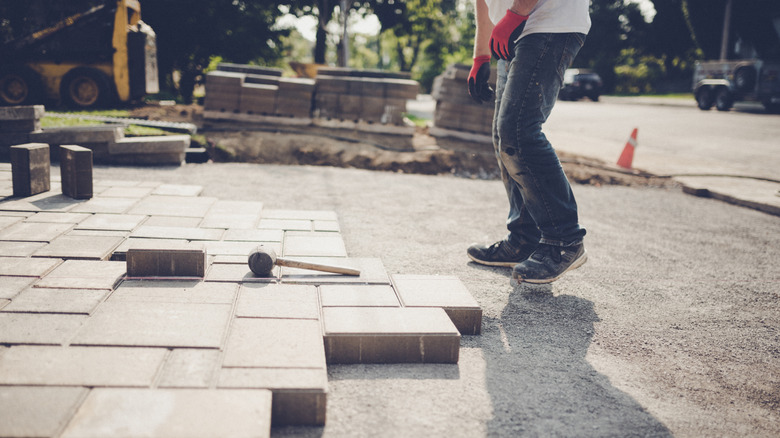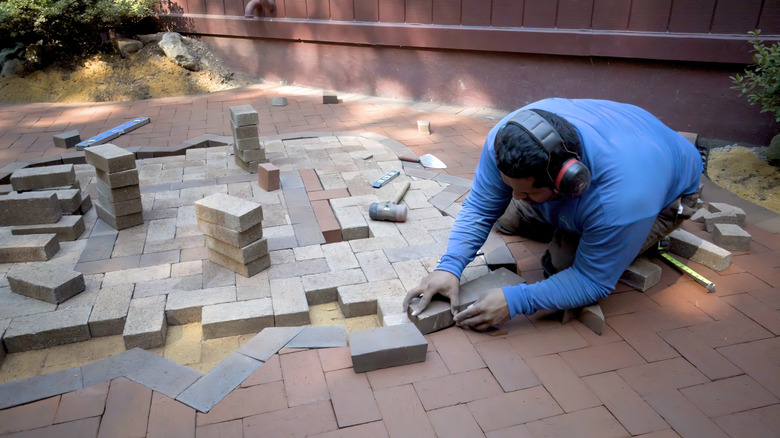Why You Should Pay Attention To The Thickness Of Your Pavers
When it comes to designing outdoor spaces, pavers are the foundation on which everything else is built. Choosing the right type of pavers to create the patio of your dreams often starts with aesthetic choices like color, shape and texture. However, their thickness is arguably the most critical factor in terms of actual functionality. Whether you're paving a backyard patio, a driveway, or a walkway, the thickness of your pavers can make a massive difference in how well and how long your new surface will last. So, why exactly does thickness matter so much?
It's all about the type of load your pavers will bear. For areas with light foot traffic, thinner pavers might suffice, but as soon as you introduce heavier loads — like vehicles or machinery — you'll need something much more sturdy. Thin pavers are only meant to be used with an existing solid foundation. Because of this, they may crack, shift, or fail entirely under the strain of large amounts of pressure, leading to costly repairs and a surface that not only looks unattractive but can also pose safety hazards. Selecting the right paver thickness ensures that your pavers can handle the pressure without buckling under the weight, maintaining both the integrity and beauty of your outdoor space.
Choosing the right thickness for the job
Now that you know why thickness matters, how do you choose the right one? Pavers typically come in thicknesses ranging from 40mm to 100mm, and the key is to match the paver size to the application. For walkways, garden paths, and patios where foot traffic is the main concern, 40mm to 50mm pavers are usually sufficient. These thinner pavers are lightweight, easy to install, and ideal for areas that don't experience heavy use or weight.
If you're wondering how to choose the best paver stones to use for your driveway, you'll need thicker pavers — generally 60mm or more. For driveways with occasional light vehicle traffic, 60mm pavers should do the job. However, if you're paving a commercial space or a driveway that frequently sees heavy trucks or larger vehicles, 80mm to 100mm pavers are the way to go. These thicker pavers are designed to withstand high-pressure loads without cracking or deforming, making them essential for more demanding applications.
Choosing the wrong thickness is one of the most common mistakes to avoid when laying pavers in your outdoor space, and can lead to more than just structural issues. It can also void warranties, escalate long-term maintenance costs, and diminish the overall look of your space. By taking the time to match the thickness of your pavers to their intended use, you can save yourself the headache and expense of repairs, ensuring a surface that both looks good and is built to last.

